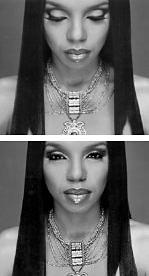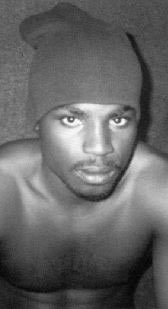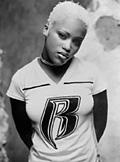Chick rappers used to be only slightly more popular than white rappers. Or gay rappers. In the brutally masculinist world of hip-hop, female artists were seen as interlopers, illegitimate heiresses to the culture. Despite the flack, there were always a few women who braved the storm and made their presence known. Beginning with the Sugar Hill Records group Sequence (which featured a teenage Angie Stone) and running through Dimples D, Ice Cream Tee, Sparky D, and JJ Fad, hip-hop by women has told a powerful counternarrative to the genre’s boystown hegemony.
DA BRAT
Unrestricted (So So Def/Columbia)
RAH DIGGA
Dirty Harriet (Elektra)
TRINA
Da Baddest Bitch (Slip-N-Slide/Atlantic)
Never was there a more potent female voice than that of MC Lyte. Smart and sassy, her lyrics were fierce and carefully constructed; strong enough to challenge even premier male lyricists. She rhymed about sexually transmitted diseases. She rhymed about love. She rhymed about clothes. She rhymed about tearing sucker MCs into tiny little pieces. Like her male counterparts, she explored a range of topics and was never begrudged the right to do so. Finally a female was on par with the boys, and the guys knew better than to give her a hard time.
Yet the period in which Lyte had her greatest moments—the late ’80s—was the last time all of hip-hop lived in one house. After the turn of the decade, camps stratified: East vs. West, North vs. South, conscious vs. gangster, mainstream vs. independent, battle vs. narrative. Soon enough, artists found that they couldn’t be every rapper, even if it was all in them. For women, this proved especially damaging. Some, such as Boss, retreated to the gangster camp (despite her middle-class, private-school upbringing). Others, such as Heather B, tried to get by on battle lyrics alone, eschewing appearance. Most often though, sex was the main currency, as seen in the dual ascendance of Lil Kim and Foxy Brown. They could rhyme—the fact that most of their lyrics were written by others notwithstanding, they sounded good—but their success was, and is, predicated more on what you could see than what you could hear.
Over the past couple of years, a small group of female rappers has begun to break free of these conventions. Most notably, rapper-songstress Lauryn Hill destroyed stereotypes in 1998 with her genre-crossing, emotionally raw solo debut. More recently, Eve, lone female in the Ruff Ryder camp and self-proclaimed “pitbull in a skirt,” has come on the scene. A former stripper, Eve parlayed her good looks and unique style into a rap career, and has been successful because she’s a gifted MC as well as compelling eye candy.
Rah Digga, to her credit, is trying to follow the Eve model of ascendance rather than enrolling in the Foxy Kim school of bra-slinging. Earning her chops through New York’s Lyricist Lounge open mic night and rhyming with New Jersey’s Outsidaz clique has placed her in environs where her gender could easily work against her. Consequently, she’s cultivated a vicious battle sensibility, blessed with a wealth of one-liners that would do even Canibus proud. On “Tight,” she threatens: “I’ll leave you twisted like a thug with blond hair” (talk about gender identity issues!). On “Curtains,” she proudly boasts, in what must be one of the most promising insults in years, “You’re wack and won’t even think of punch lines I don’t use.” On “Imperial,” the album’s second single, she drapes herself in dun language, taunting, “Labels scared to death to let their artists rhyme with me/you could send your thuggest MC and watch me son him/ the ruggedest bitch don’t even rhyme about gunning.”
Still, Rah is grappling with her femininity. The photos in her CD booklet look like outtakes from a Lauryn Hill photo shoot, but without the natural glow. In the lyrics as well, Rah seems unnaturally preoccupied with locating herself at the crossroads of two worlds—the grimy battle stage and the dainty dressing room. She calls herself “la cr譥 de la gutter” and takes a moment on the album’s final track to “thank God I can look this fly and still rock this hard.” No dummy she, Rah knows it pays to be the ghetto diva, and if rapping in high heels is what it’ll take to get ears open, she’ll do it. It’s a move recently made as well by Chicago’s Da Brat. Originally known for her jail suits and cornrows, the last year has seen the rapper glued to Mariah Carey’s side and sporting thon-th-th-th-thongs in her videos. Even Trina, the baddest bitch to Trick Daddy’s nann nigga, wears her sex-positivity so strongly it reads masculine; kicking underperforming men out the bed and cheaters out of her life. There’s nothing coy about her lust, which is why it’s not only a (potentially troubling) victory for hip-hop feminism, but a perfect fit in rap’s male bravado tradition.








